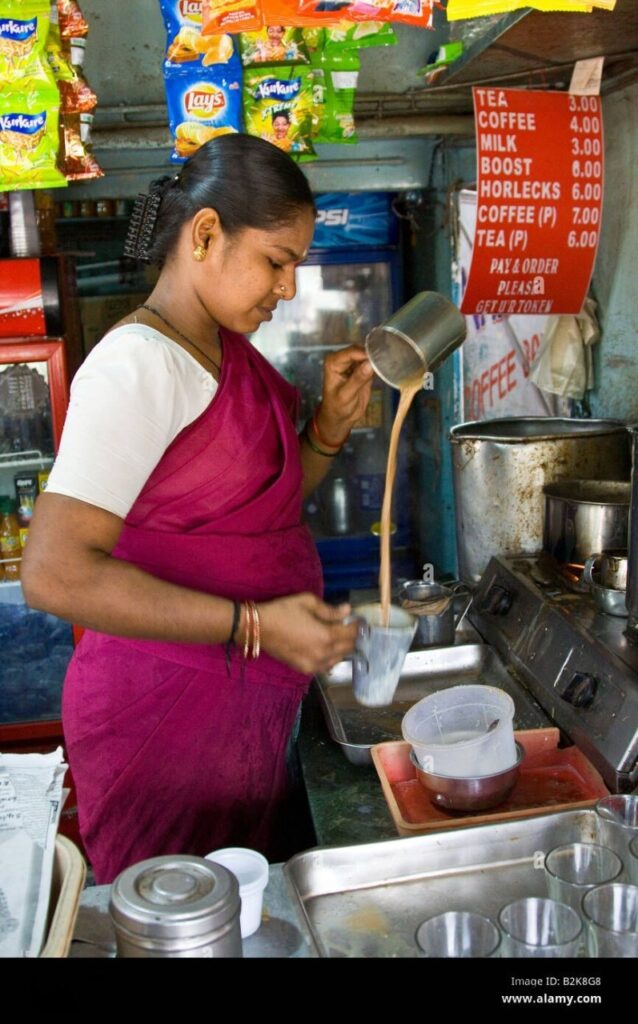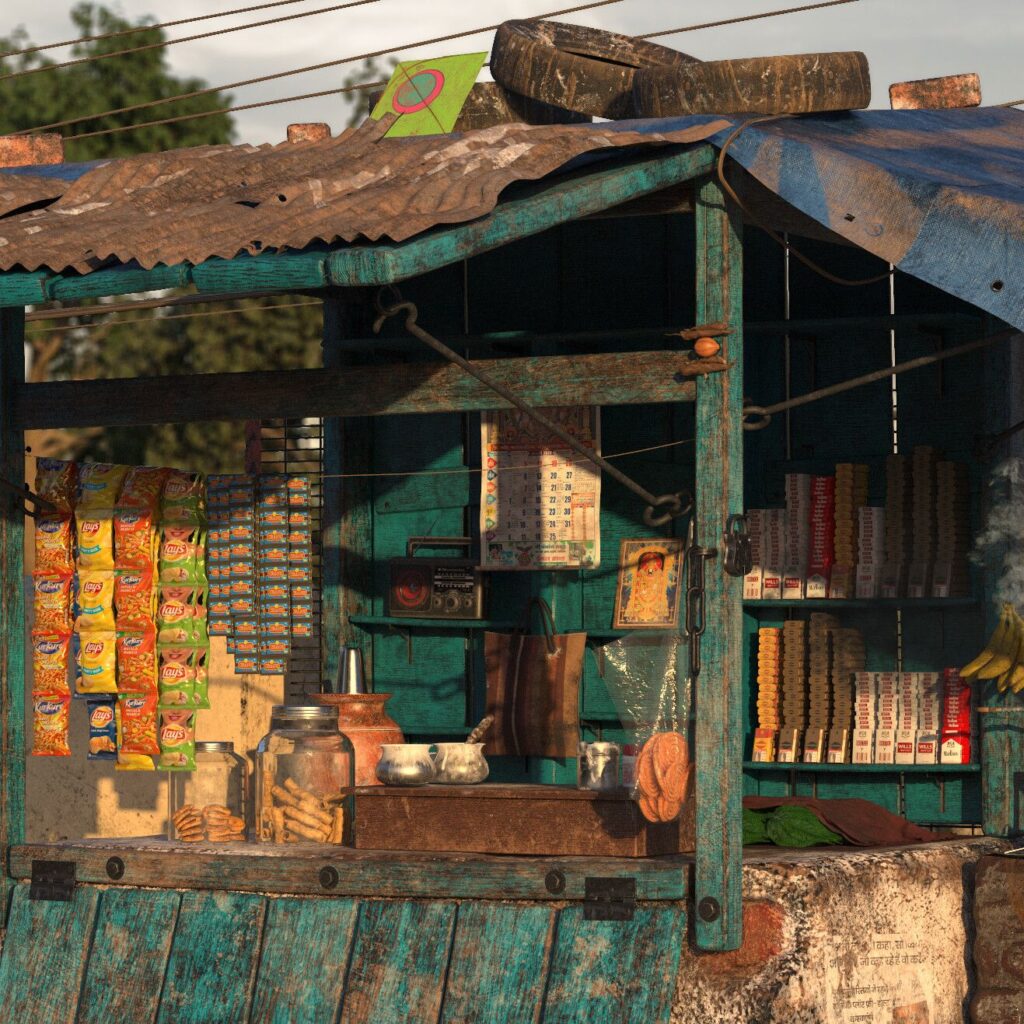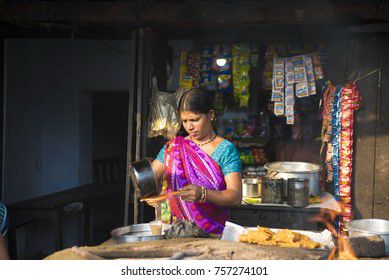The Crossroads of Taste
By Lokanath Mishra
Lalita was a woman of refined tastes, or so she believed. She had an unwavering rule: she would not eat food prepared outside her home. This principle extended even to the most celebrated restaurants, including five-star hotels. Her colleagues at the office in Bhubaneswar knew her well. On Wednesdays and Fridays, they would flock to a small, unassuming restaurant on the Bhubaneswar-Cuttack national highway. The place was famous among them for its incredibly delicious rice and mutton curry, but Lalita would never join. She always brought a packed lunch from home.

Her friends, including the adventurous Sasmita, the pragmatic Anjali, the spirited Kavita, and the quiet Priya, often tried to persuade her to come along for lunch at the famous Mati Handi mutton shop in Bapuji Nagar on Sundays. Lalita would politely decline, preferring the comfort and familiarity of her own kitchen. She and her friends would often pass by small roadside stalls and eateries, but her friends would ignore them, convinced that only well-known, city-based restaurants were worth their time and money.

Lalita’s dedication to her rule was absolute. Even when traveling by bus, she carried her own food. She knew that bus drivers often stopped at small, roadside restaurants, and she was prepared to avoid them. Many of her friends, traveling in their own cars or hired taxis, lived with a different kind of pride. “Why stop at such a small stall?” they would say. “We’re respectable people. We’ll only stop at big dhabas or restaurants.”
One day, Lalita and her four friends—Sasmita, Anjali, Kavita, and Priya—decided to drive to Naraj Barrage to see the flood in the Mahanadi River. They started their journey in their car after a home-cooked lunch. The distance from Bhubaneswar to Naraj was only about 26 kilometers, but on their return journey, heavy rain caused a massive traffic jam. The short drive turned into a two-hour ordeal. By the time they reached Trisulia Square, it was 5:30 PM.

Tired and frustrated from the slow traffic, they decided to pull over for a cup of tea. At 5:45 PM, they spotted a tiny roadside tea stall. A woman around 40 years old managed the stall. She seemed surprised to see a car with five girls stop. “Auntie, do you have tea?” Sasmita asked.
“Yes, how many cups?” she replied.
“Five,” they said.

Lalita hesitated, but the exhaustion and the onset of drowsiness made her agree to a cup. “I’ll have to make it fresh,” the auntie said. “Go ahead,” they replied.
As she prepared the tea, the girls noticed two large clay pots in front of the stall. Sasmita, always curious, asked, “Auntie, do you have anything else apart from tea?”
“Yes,” she replied. “Would you like to eat?” She didn’t say what the dish was, but the four friends, intrigued, said, “Sure, bring it.” Lalita, though hesitant, was intrigued by the idea of a homemade snack and finally agreed to try a plate herself.

The auntie served them something incredible: hot, fried baati on sal leaves, topped with a flavorful chana chhola (chickpea curry). The aroma of the dish, cooked over a fire of cow dung, was intoxicating. The girls asked what was in it. “Just chickpeas, turmeric, and chili,” she said, before garnishing each plate with curd, salt, roasted cumin powder, and finely chopped onions.

One bite was all it took. The flavor was so delicious that Lalita, who had been so against eating outside, was the first to ask for another plate. Soon, everyone was demanding more, some even going back for seconds and thirds.
The auntie was thrilled. She then served the tea, prepared with fresh milk, ginger, and a generous layer of malai. The tea was as unique and delicious as the snack. Just as they were finishing, two cyclists stopped by, and the auntie began preparing two more cups of tea. The chana chhola, however, was now finished.

Lalita was thoroughly impressed with the snack and the tea. She felt a connection to the auntie and her genuine hospitality. “Auntie, why did you make such a small quantity of baati and chhola?” she asked. “And why do you only make tea when someone orders it?”
The auntie’s innocent reply touched their hearts. “Beti, if I make more and it doesn’t sell, it will spoil.”
“Why would it spoil?” Sasmita asked. “Just sell it.”
The auntie’s response was simple and profound. “Beti, if I cook too much and it doesn’t sell, it won’t last until morning. It will go bad. I don’t have enough money to waste ingredients. If even one day’s food goes bad, it takes me two or three days to recover the losses. I fall into debt.”
For a moment, Lalita considered suggesting she buy a refrigerator, but seeing the stall’s humble condition, she said nothing.
At that moment, Kavita remembered something the head chef of a famous hotel had told her: “We bulk prepare all the high-demand items, store them in refrigerators for six to seven days, and reheat them when ordered.”

The contrast was stark. Here was a place serving freshly prepared food, yet they had always intentionally avoided it. Lalita’s mindset completely shifted. They had been seeking out places that served week-old, stale food, paying a premium for a name and a show, all while dismissing the people who offered fresh, hygienic, and affordable meals.
From that day forward, Lalita’s perspective changed. She realized that these small local food stalls were run by people who depended on every customer to survive. Skipping a big hotel once makes no difference to them, but even one extra customer at a small stall could provide food for a family for four more days. In return, they received not only genuine respect but also fresh, delicious, and affordable food.
